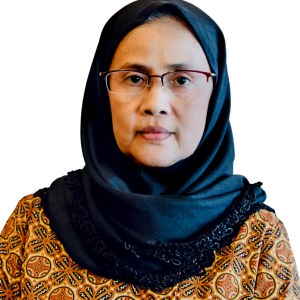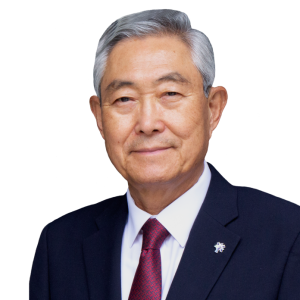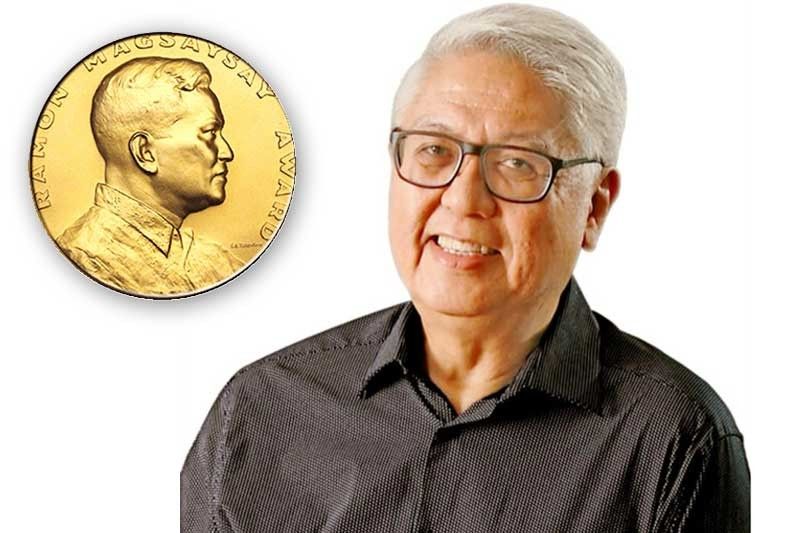
By Michelle Limpe
In a world swamped with turmoil and injustice, the Ramon Magsaysay Award serves as a beacon of hope and inspiration, as it recognizes individuals from all over the region who use their education, experience and resources, no matter how small, to instill positive changes in society in whatever field they’re in. Like in previous editions, this year’s awardees were chosen for their selfless and exceptional work related to public service and/or the arts, which transformed their respective communities.
Whether wittingly or not, they embody the ideals of the late Ramon Magsaysay, the country’s third post-war president. This year’s awardees are Filipino Raymundo Pujante Cayabyab, aka Ryan Cayabyab or, to his countless colleagues, co-workers and students, simply Mr. C, South Korean Kim Jong Ki, Indian Ravish Kumar, Thai Angkhana Neelapaijit, and Burmese Ko Swe Win. The 2019 Ramon Magsaysay Awards Night will take place on Monday, September 9 at the Cultural Center of the Philippines. The public is invited to attend the ceremony and pay tribute to these influential winners, most especially the country’s very own Ryan.

As the first Filipino musician to be granted the prestigious award, Ryan, also a National Artist for Music, is most notably recognized for using his talent to promote Filipino pride and cultural identity through music. Coming from a household, which lived and breathed music, Ryan was drawn to studying music at a young age.
His studies took a serious turn after he earned for himself a scholarship at the University of the Philippines College of Music. His works, such as Kay Ganda ng Ating Musika, Kumukutikutitap, and Paraiso, to name a few, have won multiple awards at local and international music competitions. He started writing music in the late ’70s and gained popularity among Original Pilipino Music (OPM) fans and industry practitioners alike, eventually becoming the head and artistic director of the San Miguel Foundation for Performing Arts.

As such, he became a conductor and composer of its award-winning philharmonic orchestra and master chorale. Most recently, Ryan was named “Lucky Person of the Year” by Stargate Media Corp.’s PeopleAsia magazine in partnership with Resorts World Manila at the 2019 “People of the Year” Award in recognition of his “hard work and unshakeable faith that enabled [him] to be a symbol of hope.” This comes a year after he was named a National Artist of Music in 2018 by the National Commission for Culture and the Arts.
Ryan’s impact is especially seen in the OPM movement where he led multiple Filipino music festivals and inspired the next generation of homegrown musicians, whose works have now flooded radio and TV in celebration of the Filipino spirit and legendary musicality. He extended his influence by teaching at his alma mater’s conservatory of music and opening music workshops for the public with his wife. His ability to break down barriers and use music as a means to unify the Filipino people, says a press literature from the Ramon Magsaysay Foundation, captures the spirit of the Ramon Magsaysay Award. He is an inspiration to those in the creative fields, reminding aspiring musicians that their gifts can be used as a catalyst for change among the likes of human rights activists and journalists.
Journalism with a difference
India’s Ravish Kumar and Myanmar’s Ko Swe Win may come from completely different backgrounds, but their use of journalism in an ethical manner has made such positive impact in each of their respective societies, earning for them the renowned Ramon Magsaysay Award.
As a media person, Ravish combatted India’s “press shrink” through his daily show “Prime Time.” According to a press literature, his dauntless ability to call out corrupt, high-ranking officials and expose under-reported issues affecting the poor and marginalized have earned for him the acclaim of “giving a voice to the voiceless.” His achievements contribute to India’s numerous Ramon Magsaysay winners, which is second only to the Philippines.

Ko Swe Win, on the other hand, has led a tumultuous life. He was imprisoned for joining a student demonstration against his country’s ruling military junta before finishing his master’s degree in journalism at Hong Kong University. Instead of working abroad, he chose to return to his hometown in 2012.
There, he used his talents to become the editor-In-chief of Myanmar Now, a publication known for exposing alleged irregularities in the Myanmar government. He successfully increased the readership of the news outlet to promote justice within his community and raise awareness for high-impact issues. Because of his bravery, Ko Swe Win is being awarded the Ramon Magsaysay Award for Emergent Leadership. This category is distinct in recognizing the “leadership skills of those who have done outstanding work to combat social issues in order to share the awardee’s talents on a broader scale outside of his or her community.”
Hope amidst adversity
The Ramon Magsaysay Award is also known for acknowledging persons who have used their platforms to address issues of human development within Asia. By turning their respective personal tragedies into stories of inspiration and change, South Korea’s Kim Jong Ki and Thailand’s Angkhana Neelapaijit have each earned for themselves the prestigious recognition.
Successful businessman Kim Jong Ki was led to champion greater feats when he encountered a father’s worst nightmare–his son’s suicide due to bullying and school violence. Overcome with grief, Jong Ki realized the flaws in the government system and soon established the Foundation for Preventing Youth Violence (FPYV), advocating for the Law on Prevention and Handling of School Violence to be ratified by the government. Since FPYV was founded in 1995, the nation’s incidence of school violence has dropped from 20 percent to three percent.
Angkhana Neelapaijit was housewife whose life changed when her husband, human rights lawyer Somchai Neelapaijit, was abducted after he publicly accused the military of illicit deeds. Neelapaijit then devoted herself to understanding legal matters in order to seek justice for her husband and other human rights victims. She ended up establishing the Justice for Peace foundation, a network of human rights and peace advocates, and soon became the commissioner of the National Human Rights Commission of Thailand.

Because of her perseverance, Neelapaijit succeeded in advocating for the Thai government to sign and ratify the United Nations Convention against Torture in 2007 and the Convention to Protect All Persons from Enforced Disappearance in 2012.
Jong Ki and Neelapaijit are examples of the courage and hope that the Ramon Magsaysay Award program seeks in its awardees to be a model for succeeding generations.
Although the Philippines remains mired in many socio-economic problems, such as those of poverty, public health, pollution, education, corruption and human rights abuses, the awards are a reminder to the public of the change that is possible when one maximizes his or her resources and capabilities. The awards are also a symbol of what individuals can achieve when they set their minds to a future of justice and dignity, in line with the beliefs of President Ramon Magsaysay himself.





